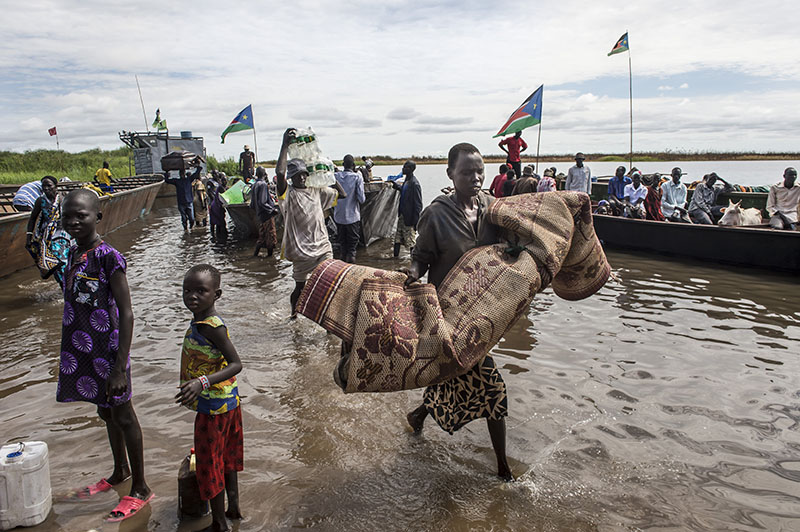
Though today there are festivities prepared in Juba, the anniversary of South Sudan’s 2011 split from Sudan brings all too little to celebrate. Four years after independence, the people of South Sudan face yet another violent conflict that has led to tens of thousands of deaths, over 1.5 million people displaced, and millions of people anticipating food emergencies in the coming months, compounded by a growing economic crisis.
My first trip to Juba was last fall, where the streets were quiet and even I, a newcomer, could tell a certain sense of restraint hung in the air. But some normalcy was preserved, and partners’ hopes for regional and international community engagement drove the conversations forward. I returned a few weeks ago from another visit to East Africa. Though I didn’t reach Juba this time, I had the chance to meet with some of HU’s South Sudan partners and friends in the region. This time, the conversations focused far more on South Sudan’s internal dynamics and opportunities. People were abuzz with theories about the return of the former SPLM detainees to Juba, or tentatively pointing toward various efforts to reduce the ethnic tensions from the conflict. But the discussions were also filled with disheartening observations of a fracturing conflict, an economic crisis exploited for short-term gains, and international processes complicated by the region’s competing interests. At some point each conversation faltered into silence, everyone staring out into the distance, struggling to see a way forward for the young country.
At its core, all recognized this as a failure of leadership, political in nature but twisted into familiar ethnic frames. Those who are responsible for the severe human rights violations during the conflict should be held accountable for their acts, and the international community should ensure that more arms do not increase the intensity of the conflict. But any long-term solution to the challenges in South Sudan must be rooted in the voices and needs of all its citizens, not the political desires of its armed or powerful. Leaders negotiating, whether in South Sudan, the region, or beyond must engage civil society and their own communities in building a more peaceful, prosperous and well-governed South Sudan.
The first priority of all parties to the conflict should be to reach and uphold an agreement that ends the fighting and allows for assistance to the millions of citizens who desperately need it, and paves the way for a South Sudan that its people deserve. A true celebration of South Sudan’s years of statehood would be an inclusive peace.